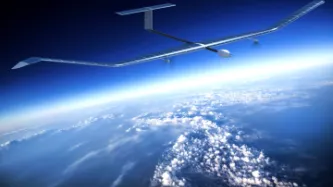Search
Content type: Examples
The Department of Health in the US state of Kansas is tracking residents' locations via a platform called Unacast, which compares aggregated GPS mobile phone data from before and after the implementation of social distancing and grades each county on its compliance. As of April 1, 45 of 105 Kansas counties had received an F rating, and the state as a whole had managed a C. Unacast says the data it has access to is updated every other day and publishes updated ratings on all 50 US states.…
Content type: Examples
The US Centers for Disease Control and Prevention, in conjunction with local and state governments, are using location data collected by the mobile advertising industry from millions of cellphones in order to better understand how Americans are moving during the COVID-19 pandemic and how those movements affect the spread of the disease. The goal is to create a portal that federal, state, and local officials can use to study geolocation from up to 500 US cities and see which retail…
Content type: Examples
The whistleblower said they were unable to find any legitimate reason for the high volume of the requests for location information. “There is no other explanation, no other technical reason to do this. Saudi Arabia is weaponising mobile technologies,” the whistleblower claimed.
The data leaked by the whistleblower was also seen by telecommunications and security experts, who confirmed they too believed it was indicative of a surveillance campaign by Saudi Arabia.
The data shows requests for…
Content type: Examples
In a widely circulated animated heat map, the geospatial visualisation company Tectonix GEO in partnership with the location technology company X-Mode used the secondary locations of anonymised mobile devices that were active on a single beach in in Ft Lauderdale, FL during spring break to show how the beach-goers fanned out across the US afterwards, potentially carrying infection with them. Although the visualisation was instructive in showing how contagion spreads, it was unclear whether any…
Content type: Examples
At the MIT Media lab, Ramesh Raskar is leading a team that includes software engineers at companies such as Facebook and Uber to develop the free and open source app Private Kit: Safe Paths. The app is intended to share encrypted information between phones in the network without going through a central authority so that individuals can see if they've come in contact with someone carrying the coronavirus. Anyone who tests positive can choose to share location data with health officials, who can…
Content type: Examples
Researchers at the University of Oxford are working with the UK government on an app similar to the smartphone tracking system China developed to alert people who have come in contact with someone infected with the coronavirus. The British app, which would be associated with the country's National Health Service,, would rely on the public volunteering to share their location data out of a sense of civic duty rather than, as in China, compulsion. The service would not publish the movements of…
Content type: Examples
UK: O2 shares aggregated location data with government to test compliance with distancing guidelines
Mobile network operator O2 is providing aggregated data to the UK government to analyse anonymous smartphone location data in order to show people are following the country's social distancing guidelines, particularly in London, which to date accounts for about 40% of the UK's confirmed cases and 30% of deaths. The project is not designed to monitor individuals. Lessons from the impact on London of travel restrictions could then be applied in the rest of the country. The government says it has…
Content type: Examples
BT, owner of UK mobile operator EE, is in talks with the government about using its phone location and usage data to monitor whether coronavirus limitation measures such as asking the public to stay at home are working. The information EE supplies would be delayed by 12 to 24 hours, and would provide the ability to create movement maps that show patterns. The data could also feed into health services' decisions, and make it possible to send health alerts to the public in specific locations.…
Content type: Press release
Privacy International today received an email from Saul Olivares, Sales and Marketing Director of Creativity Software, in response to the letter we sent to Creativity CEO Richard Lee yesterday.
Mr Olivares directed PI to an attached statement, in which Creativity stated that it was:
…proud to be a supplier of world class technology to MTN, in Iran and other countries. MTN is a company with the vision of being the leading telecommunications provider in emerging markets, with an avowed mission…
Content type: News & Analysis
Image source
This is a guest post by Zoë Blackler.
If you want to know how the UK came to be the most watched nation in the world, with CCTV on every corner, you need to go back to 1942: the now ubiquitous policing aid was first developed for use in missile testing by the German military.
Tear gas, GPS trackers, pain rays, and surveillance drones - technologies developed by the military for use against foreign enemies have a habit of finding their way into the hands…
Content type: Press release
In collaboration with the Wall Street Journal and the Guardian, Privacy International today published a database of all attendees at six ISS World surveillance trade shows, held in Washington DC, Dubai and Prague between 2006 and 2009. ISS World is the biggest of the surveillance industry conferences, and attendance costs up to $1,295 per guest. Hundreds of attendees are listed, ranging from the Tucson Police Department, to the government of Pakistan, to the International…
